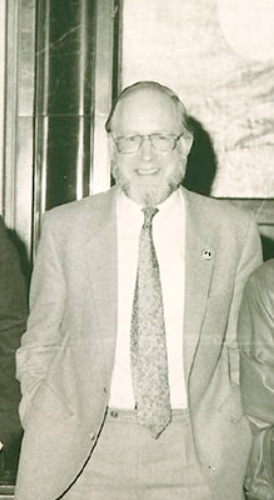JULIAN TUDOR HART AND THE 'INVERSE CARE LAW'

2018 - the year which saw the 70th anniversary of the National Health Service - also saw the death, aged 92, of Dr Julian Tudor Hart. Hart was from 1961 to 1987 a General Practitioner working in Glyncorrwg, an isolated coal mining community in the Afan Valley, above Port Talbot in South Wales. He pioneered an approach to medicine which laid great emphasis on the community as a whole and on the needs of those who did not present themselves to the doctor as well as of those who did. To quote his obituary in the British Medical Journal: "He became the first GP in the UK to routinely measure blood pressure. He measured it in everyone in Glyncorrwg down to the last inhabitant—who turned out to have the highest reading—and he wrote it up in what would be the last single authored paper on blood pressure for the Lancet in 1970.
"Local cooperation was essential, and working in partnership with patients was a guiding principle for Tudor Hart. He formed a health committee in Glyncorrwg in 1975, which met monthly and discussed public health issues such as smoking.
"The preventive health strategy paid off. In 1991 The BMJ published a study that found death rates in Glyncorrwg to be 30% lower than in the neighbouring village, Blaengwynfi."
In February 1971 he published an article in The Lancet under the title 'The Inverse Care Law':
"The availability of good medical care tends to vary inversely with the need for it in the population served. This inverse care law operates more completely where medical care is most exposed to market forces, and less so where such exposure is reduced. The market distribution of medical care is a primitive and historically outdated social form, and any return to it would further exaggerate the maldistribution of medical resources."
It seems that even then there were siren voices calling for a return to a market based system, or at least a system in which basic services would be provided free, but the 'frills' ('time, convenience, freedom of choice, privacy') would be paid for. Hart quotes one of the advocates of marketisation (J.S.Seale, writing in The Lancet) saying "it is precisely these facets of medical care - the 'middle class' standards - which become more important to individuals as they become more prosperous." Hart replies that "not only the patient - all patients - value these things; to practise medicine without them makes a doctor despise his trade and his patients."
Hart recognises of course that the NHS had greatly improved working class access to health care, but he points out that there were still great inequalities and that these were likely to increase. This was partly because the middle and richer classes still had a better idea of what they wanted and how to get it; but it was also because GPs preferred working in comfortable surroundings with smaller patient lists, and they were encouraged in this preference by the career structure:
"Of 169 new general practitioners who entered practice in under-doctored areas between October, 1968, and October, 1969, 164 came from abroad ... If doctors in industrial areas are to reach take-off speed in reorganising their work and giving it more clinical content, they must be free enough from pressure of work to stand back and look at it critically. With expanding lists this will be for the most part impossible; there is a limit to what can be expected of doctors in these circumstances, and the alcoholism that is an evident if unrecorded occupational hazard among those doctors who have spent their professional lives in industrial practice is one result of exceeding that limit. Yet list sizes are going up, and will probably do so most where a reduction is most urgent ... The career structure and traditions of our medical schools make it clear that time spent at the periphery in the hospital service, or at the bottom of the heap in industrial general practice, is almost certain disqualification for any further advancement."